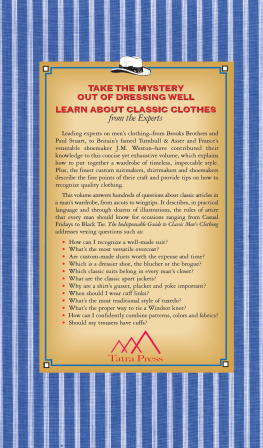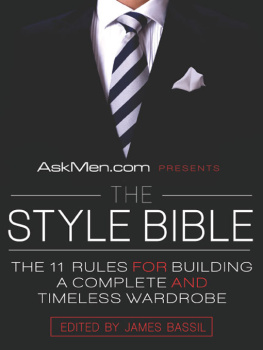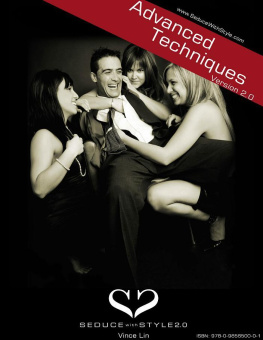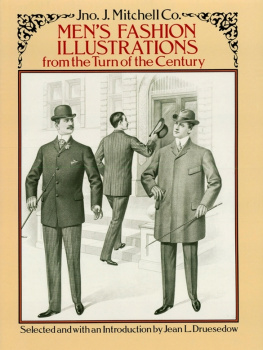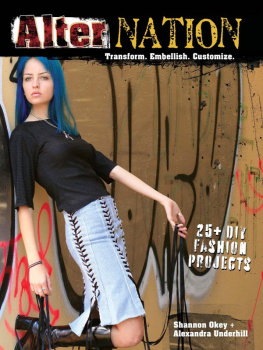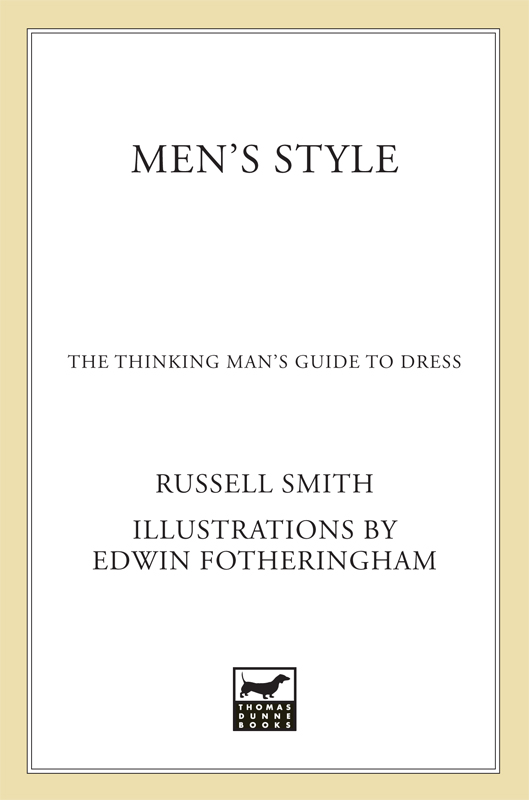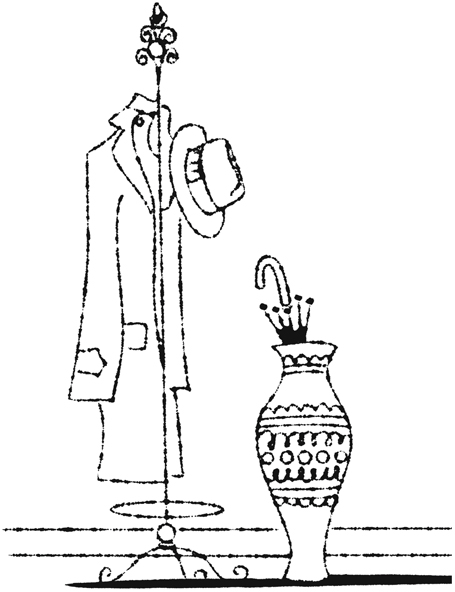

The author and publisher have provided this e-book to you for your personal use only. You may not make this e-book publicly available in any way. Copyright infringement is against the law. If you believe the copy of this e-book you are reading infringes on the authors copyright, please notify the publisher at: us.macmillanusa.com/piracy.
Contents
For Mitty Smith
INTRODUCTION
WHY BOTHER?
There are moments, Jeeves, when one asks oneself, Do trousers matter?
The mood will pass, sir.
P.G. WODEHOUSE
This is the most fundamental question of all, and it had best be settled off the top. Who cares? If I confess even to myself an interest in the superficial, am I not admitting to superficiality generally? Am I not admitting my failure to qualify as a practical man, as the kind of quiet and sober man who has built empires and scored winning touchdowns, the wholesome but unassuming man that this continent most values?
For lets admit it, it is in North America that this thought worries us most. This is still a fundamentally Protestant and democratic place, a place which defines a man, quite sensibly, by what he accomplishes, not by how he appears. The lands hostility, the brutal task of producing and building while surviving in such vastness, makes even art and culture low priorities: at best a luxury; at worst morally suspect, the indulgent pursuit of idlers. This distrust we see demonstrated whenever our publicly funded galleries make a purchase.
If art-making is suspect here, then think what a rocky foothold have the more frivolous pursuits of ornamentation, the trivially aesthetic. What could be more condescending in, say, academic life than to call someone, man or woman, fashionable? Trendy, perhaps, would be worse, since it clearly means unsubstantial; slacker, which means the same thing, is definitely worse; vain maybe, since it connotes self-centredness but all are indeed associated with the dreaded fashion. Dandy is the worst of all, signifying a lack of all that gets the harvest done, the skyscraper built: manliness, team spirit, co-operation, self-effacement, simple practicality. How does a dandy build a railroad?
Curiously, this queasiness about appearing to take an interest in the aesthetic comes from both the right and the left. And it comes from both men and women.
The old-fashioned opposition originates in simple social conservatism: sensuality is unseemly in a man its ultimate manifestation, flamboyance, an embarrassment. And then of course theres homosexuality, which is, as heroin addiction is to marijuana smoking, the logical end of such an unhealthy preoccupation. Even more offensive than homosexuality is mere effeminacy, retreat of the weak-willed, of the boys afraid to join the rugby game or buffalo hunt.
Conservative women are just as likely to be embarrassed by overly beautiful or tasteful men. Taste itself seems like a feminine trait to many women. I have heard women of all ages particularly young women from wealthy suburbs who are attending exclusive universities sneering at guys who dress up, meaning those who wear anything but jeans and a T-shirt. Trying too hard, say the girls with manicured nails and sun-lamp tans. For more formal occasions, they would put their men in khaki trousers and polo shirts. Bland is attractive to conservative women it seems reliable. Maybe it reminds them of their dads.
BLAND is attractive to CONSERVATIVE women it seems RELIABLE. Maybe it REMINDS them of their DADS.
The socialist opposition has a slightly more complicated origin but ends in the same place. The sensitive scorner of fashion is concerned about elitism, about consumerism, about materialism generally. He thinks it ridiculous that people should spend so much money on frippery, when people are all basically the same and so many in the world are starving. He thinks that distinctions in clothing lead to distinctions in social class, which is an injustice to be eliminated, if possible, or at least masked. He is the type who defiantly wears his old sweater to a black-tie gala as some kind of inarticulately political protest.
The socialist/sensitive opposition also often takes the shape of one argument: a distaste for the false. What is good is natural and pure; what is bad is artificial and pretend. The word pretentious comes up frequently in reference to metropolitan social life: it refers to fancy restaurants and martini bars, and especially to any nightclub with a barrier of velvet ropes before its door, and a doorman with a clipboard. People who dress up are pretentious meaning, I think, that they are pretending to be better than the rest of us.
Actually Im not sure what pretentious really means in this context; it has become an all-purpose insult among those opposed to sophistication, exactly what gay means on the playground. In my experience, at least in Canada, where I grew up, pretentious tends to mean someone who gets better marks than you do. (Which is what gay means on playgrounds, too.)
I have struggled through many a tofu-heavy dinner party to convince the detractors ( real people they, unaffected people) of what really goes on behind those velvet ropes that there is in fact little pretense, that no one inside is pretending to be anyone else. In a dark and fashionable bar, there are rarely conversations about books that people have pretended to read or ideas people have pretended to understand; indeed, there are rarely conversations at all. No one would claim otherwise. The dark and fashionable bar is a place for the intercourse of surfaces.
But there we have it: surfaces, the superficial that , we all know, is inherently ungood. That is shallow. Isnt it?
Let us consider music, something usually not thought to be shallow. I know little about the finer points of music cant read it, never studied it, never played an instrument and yet I love the works of certain composers. The pleasure I get from them is intense and physical and intellectual, too, since I know enough to compare their structural and textural qualities. I know that Brahms, say, is from an earlier historical period than Shostakovich, and since I studied history in high school I know that Brahmss formal preoccupations and the general tone of his music match those of his era, and ditto for Shostakovich.
So its pleasant to listen to Shostakovichs music and be thrilled by it and also think about it as modernist music as opposed to Romantic. All this is tied up together; I cant separate the intellectual and the visceral. And yet theres no question that I like the surface, I like the pretty effects of Shostakovich and Brahms. Its not a verbal thing. And I cant tell you exactly what Brahms is doing that is different from what Shostakovich is doing, I can only describe it in vague emotional metaphors, the way I would describe the flavours of Bordeaux and Rioja.
The same goes for Matisse and Uccello and Vermeer. Ive never painted, so I dont understand the importance of this colour and that technique. The colours are pretty. I like the surface, the rich materiality of it. I crave Matisse as I crave a silk tie or a plummy Burgundy.
But I can say that and not be shallow. Matisse, say the encyclopedias, is not shallow. Discussing Matisse as a sensual stimulus on a sensitive palate my psyche is also not shallow. When I talk about fashion and go to nightclubs, I am shallow.


